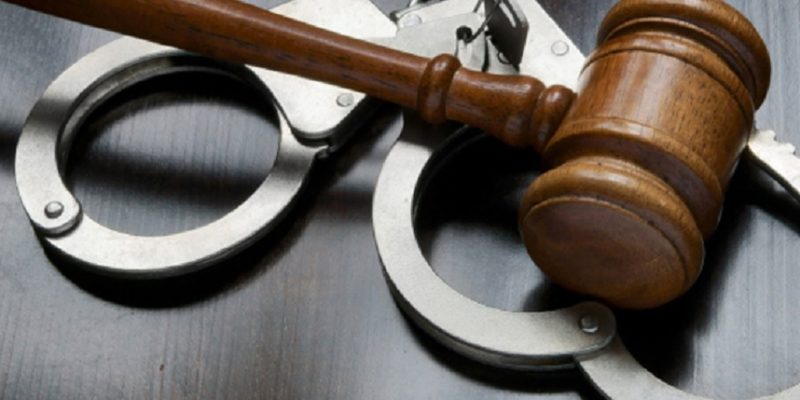
Criminal lawyers play a fundamental role in upholding justice by defending individuals accused of crimes and ensuring that legal proceedings are fair and impartial. Their work is governed by a strict ethical framework that demands unwavering integrity, professionalism, and respect for the legal system. While their responsibilities include defending clients to the fullest extent of the law, they must also balance this duty with ethical considerations that prevent misconduct or obstruction of justice.
Understanding the ethical obligations and professional duties of a criminal lawyer sheds light on the principles that guide their practice and the challenges they navigate in maintaining fairness while advocating for their clients.
Upholding the Right to a Fair Trial
Every individual, regardless of the charges they face, has the constitutional right to a fair trial. Criminal lawyers serve as the cornerstone of this right, ensuring that their clients receive competent legal representation and that the legal process remains just.
- Presumption of Innocence – A criminal lawyer must treat their client as innocent unless proven guilty beyond a reasonable doubt. This principle demands that they vigorously challenge weak or unfounded prosecution claims and scrutinize all presented evidence.
- Protection from Unlawful Prosecution – Lawyers safeguard clients against wrongful arrests, forced confessions, and prosecutorial overreach by ensuring that legal procedures are followed properly.
- Ensuring Due Process – From arrest to trial, a criminal lawyer monitors procedural integrity, preventing any violation of their client’s rights.
Without their intervention, individuals accused of crimes could be subjected to unjust treatment, reinforcing the importance of their role in the legal system.
Commitment to Confidentiality and Attorney-Client Privilege
One of the most crucial ethical obligations of a criminal lawyer is maintaining strict confidentiality regarding client information. This commitment is essential in fostering trust between a lawyer and their client.
- Attorney-Client Privilege – Conversations between a lawyer and their client are legally protected, preventing prosecutors or third parties from accessing private discussions. This ensures that clients can be open about their case without fear of self-incrimination.
- Limitations to Confidentiality – While confidentiality is critical, there are exceptions. If a client discloses intentions to commit future crimes or harm others, a lawyer is ethically required to take appropriate action.
- Preserving Trust – Clients rely on their legal representatives to handle their information with discretion, reinforcing the importance of confidentiality in criminal defense.
This principle allows criminal lawyers to build effective defense strategies while ensuring that justice is not compromised by undue disclosure of sensitive information.
Maintaining Honesty and Integrity in Court
A criminal lawyer’s duty to their client does not supersede their responsibility to the court. Lawyers must operate within the bounds of ethical conduct while presenting their case, ensuring that justice is pursued through lawful means.
- Prohibition Against False Evidence – A lawyer cannot fabricate evidence, encourage perjury, or knowingly present false information in court. Doing so would not only violate professional ethics but also undermine the integrity of the legal system.
- Obligation to Correct Misleading Information – If a lawyer becomes aware of false statements or misleading testimony, they are obligated to address it, even if it contradicts their client’s interests.
- Respecting Legal Procedures – While zealous advocacy is expected, a lawyer must not obstruct justice, intimidate witnesses, or engage in conduct that disrupts the court process.
These ethical standards ensure that criminal lawyers contribute to a legal system based on truth and fairness rather than manipulation.
Balancing Advocacy with Moral Boundaries
One of the most misunderstood aspects of criminal law is the notion that lawyers must personally agree with their client’s actions. In reality, their duty is to provide competent legal representation, regardless of their personal opinions about a case.
- Defending the Legally Guilty – A lawyer may represent individuals accused of serious offenses, but this does not mean they condone criminal activity. Their role is to ensure that the state proves guilt beyond a reasonable doubt and that sentencing is fair.
- Moral Dilemmas in Defense – Ethical concerns may arise when defending clients who have confessed guilt. In such cases, lawyers focus on procedural fairness and mitigating circumstances rather than misleading the court.
- Right to Legal Representation – No matter the nature of the accusation, every individual is entitled to legal defense. Criminal lawyers uphold this right by ensuring that justice is administered without bias.
While these responsibilities may present ethical challenges, a lawyer’s duty is to the legal system, not personal judgment.
Protecting the Integrity of the Legal Profession
Criminal lawyers not only serve their clients but also contribute to the credibility of the legal system. Upholding professional ethics is essential in maintaining public trust in the judiciary.
- Avoiding Conflicts of Interest – Lawyers must refrain from representing clients when conflicts of interest could interfere with their ability to provide objective legal counsel.
- Commitment to Continuing Legal Education – Ethical responsibilities require lawyers to stay updated on legal developments, ensuring they provide competent and informed representation.
- Reporting Misconduct – If a lawyer becomes aware of unethical practices by colleagues, they are obligated to report violations to maintain the profession’s integrity.
By adhering to these principles, criminal lawyers reinforce the justice system’s credibility, ensuring that legal representation remains a pillar of fairness and integrity.
The Ethical Compass of Criminal Lawyers
The ethics and responsibilities of a criminal lawyer extend far beyond defending clients. Their role is defined by a commitment to justice, honesty, and procedural fairness. By balancing zealous advocacy with ethical constraints, they ensure that the legal system remains a fair and trustworthy institution. Through rigorous adherence to professional standards, criminal lawyers protect not only their clients but also the very foundation of justice itself.











